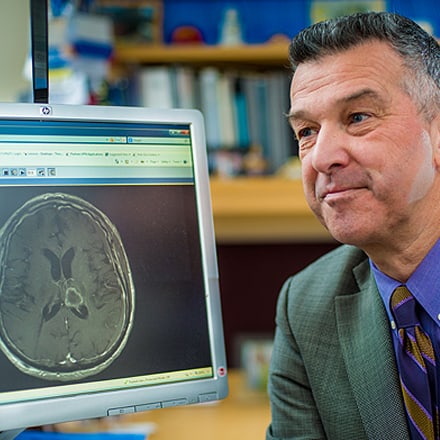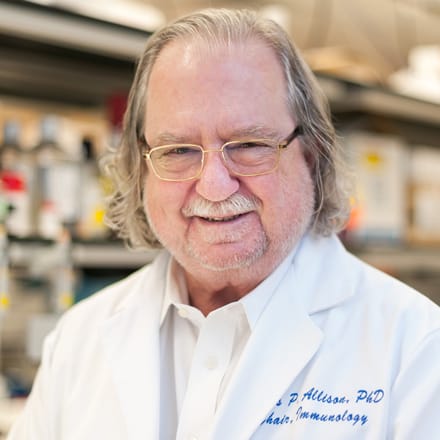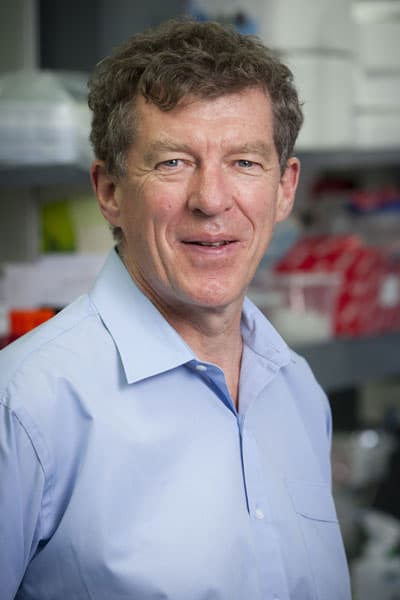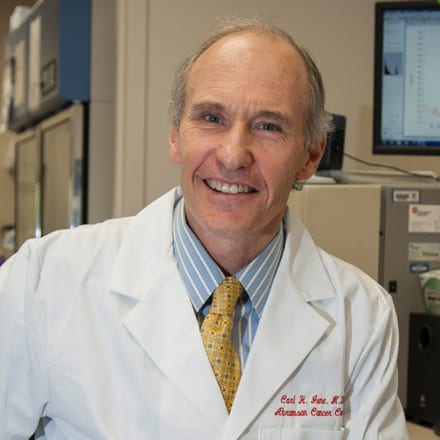Momentum in Brain Cancer Immunotherapy
In the United States, brain cancer accounts for 1 in every 100 cancer diagnoses. Although there have been significant advances in understanding the biology of brain cancers—as well as in tumor diagnosis, treatments, and quality of life of patients with the disease—the mortality rate for brain cancer has remained steady for more than 30 years. For glioblastoma, the most dangerous and aggressive form of brain cancer, fewer than 10 percent of patients survive more than 5 years. David A. Reardon, MD, wants to change that.
Dr. Reardon is currently the clinical director of the Center for Neuro-Oncology at the Dana-Farber Cancer Institute in Boston, MA, and previously served as the associate deputy director of the Preston Robert Tisch Brain Tumor Center at Duke University Medical Center. His research involves using innovative clinical trials to improve cure rates in patients with brain and spinal cancers, with a particular focus on immunotherapies. He is the principal investigator of a CRI Clinical Accelerator trial, which is enrolling 84 patients with glioblastoma. We spoke to Reardon about cancer immunotherapy and what it’s like to practice medicine today with the emergence of new treatment options.
When did you first become interested in cancer immunotherapy?
Dr. Reardon: With the immunotherapy treatments I helped to develop while I was at Duke, we had an encouraging number of brain cancer patients who were surviving two, three, or four years. Those results were remarkable in my experience with this disease. What was also amazing to me was how well the patients were doing. They weren’t exhausted from chemotherapy and all the typical side effects that so many of our patients suffer. The patients getting immunotherapy treatments looked terrific.
What made you choose brain cancer as a specialty?
Dr. Reardon: Glioblastoma is the most common malignancy of the brain in adult patients and one of the major unmet needs in oncology today. Treatment today is terribly inadequate and outcomes are overall quite poor in spite of aggressive treatment with surgery and traditional radiation and chemotherapy. This is an extremely challenging area of oncology, and I saw a great opportunity here to help advance the field.
You are the lead investigator on a CRI clinical trial of the PD-L1 inhibitor durvalumab. What is the trial testing?
Dr. Reardon: This is the first clinical trial to evaluate a PD-L1 inhibitor for brain cancer patients. It covers a spectrum of major categories of newly diagnosed and recurrent glioblastoma patients, and it will enroll three cohorts. The first cohort is for newly diagnosed glioblastoma patients who will get the PD-L1 inhibitor with standard radiotherapy. The second cohort will be for recurrent patients who have not had treatment with Avastin®. The third arm of the study will evaluate the PD-L1 inhibitor plus Avastin for glioblastoma patients who’ve been treated with Avastin previously.
Durvalumab (MEDI4736)
Checkpoint inhibitor durvalumab targets PD-L1, which is expressed on cancer cells. Blocking PD-L1 may enable the activation of T cells, as well as recruit other T cells to attack the tumor, thus empowering the body’s own immune system to fight multiple types of cancer.
If the trial meets its endpoints, what comes next?
Dr. Reardon: The next step is to begin to bring some of these promising immunotherapy approaches together into combinations. A simple, single approach may have some benefit, but cancer has multiple layers of protection to shield itself from the immune system. If we put a couple of different immunotherapies together that complement each other, I’m hopeful that’s where we’ll see much more benefit.
How has the perception of cancer immunotherapy changed since you first started in the field?
Dr. Reardon: It’s very gratifying to see it turn around 180 degrees. For many years, there have been efforts to develop immunotherapy strategies for many different cancers. Unfortunately, results were disappointing and did not lead to benefit for patients. All of that has evolved with the FDA approval of the first cancer vaccine, sipuleucel-T, for prostate cancer. Then followed the dramatic results achieved with immune checkpoint blockade in metastatic melanoma. This was the first treatment to show any survival benefit for patients with this stage of disease. Those results were unprecedented and awakened the oncology community to the potential power and efficacy of immunotherapies. Checkpoint blockade is now beginning to benefit patients with lung cancer, lymphoma, kidney cancer, and other cancers. Hopefully, glioblastoma will join the list soon.




